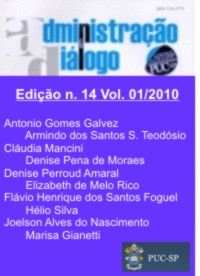O ESFORÇO DO SETOR AGRÍCOLA PARA INFLUENCIAR A AGENDA BRASILEIRA NA RODADA DOHA
DOI:
https://doi.org/10.20946/rad.v12i1.2939Abstract
Em dezembro de 2001, os membros da Organização Mundial do Comércio (OMC) chegaram a um acordo para lançar a Rodada Doha de Desenvolvimento (RDD), a mais complexa do sistema multilateral do comércio até hoje. Nessa negociação, o Brasil tem utilizado o G-20 como o principal canal para defender seus interesses ofensivos no agronegócio perante seus interlocutores. As demandas apresentadas passam por discussões dentro do país, com boa parte delas – senão todas – sendo discutidas com representantes do setor privado. Essa discussão tem se dado por meio de canais formais e informais, alguns deles criados pelo Executivo nos últimos anos. Com o forte salto na competitividade do agronegócio, esse setor passou a ocupar espaço privilegiado na agenda internacional e ofensiva do Brasil. O setor privado tem acompanhado essa mudança – ou até mesmo incentivado isso, demonstrando maior preparação para defender sua própria agenda e tentar influenciar a do governo.Metrics
Downloads
Published
How to Cite
Issue
Section
License
Authors who publish in this journal agree to the following terms:
1. Authors retain the copyright and grant the journal the right of first publication, with the work licensed simultaneously under a Creative Commons Attribution License after publication, allowing the sharing of work with acknowledgment of the authorship of the work and initial publication in this journal.
2. Authors are authorized to take additional contracts separately, for non-exclusive distribution of the version of the work published in this journal (eg publish in institutional repository or as a book chapter), with acknowledgment of authorship and initial publication in this journal.
3. Authors are allowed and encouraged to publish and distribute their work online (eg in institutional repositories or on their personal page) at any point before or during the editorial process, as this can generate productive changes, as well as increase the and the citation of the published work (See The Effect of Free Access).








